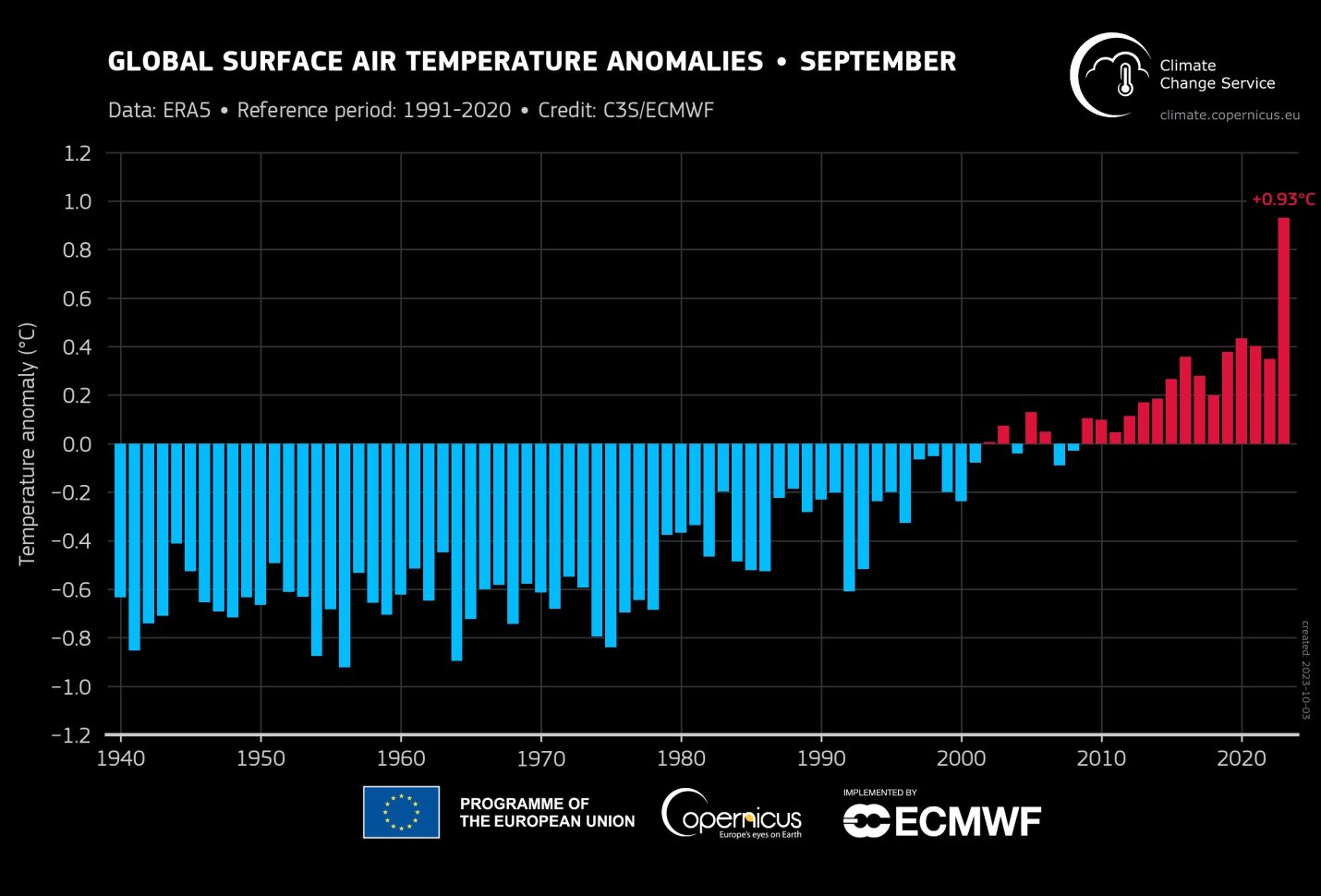
5 Steps to Build an Effective CSR Strategy
In today’s business landscape, Corporate Social Responsibility (CSR) has evolved from being a “nice-to-have” to ...

Earth just had the hottest September on record – and by a record-breaking margin, according to a leading international dataset which is used by the World Meteorological Organization (WMO) for its State of the Global Climate monitoring reports.
This continues an extended streak of extraordinary land and sea-surface temperatures and is an ominous signal about the speed with which greenhouse gases are changing our climate. The year 2023 is now on track to be the warmest year on record. Numerous high temperature records have been broken in recent months.
September had an average surface temperature of 16.38°C. This was 0.5°C above the temperature of the previous warmest September, in 2020, and around 1.75°C warmer for the month of September compared to the pre-industrial reference 1850-1900 period, according to the EU’s Copernicus Climate Change Service (C3S) implemented by the European Center for Medium Range Weather Forecasts.
“Since June, the world has experienced unprecedented heat on land and sea. The temperature anomalies are enormous – far bigger than anything we have ever seen in the past. Antarctic winter sea ice extent was the lowest on record for the time of year. What is especially worrying is that the warming El Niño event is still developing, and so we can expect these record-breaking temperatures to continue for months, with cascading impacts on our environment and society,” said WMO Secretary-General Prof. Petteri Taalas.
“WMO will work with our partners in the scientific community to try to understand what additional factors are contributing to this exceptional warming,” said Prof. Taalas.
WMO combines the C3S reanalysis dataset (called ERA5) with five other leading international datasets for its climate monitoring activities. The WMO provisional State of the Global Climate 2023 will be released at the start of the UN climate change conference, COP28, in Dubai in November.
“The unprecedented temperatures for the time of year observed in September – following a record summer – have broken records by an extraordinary amount. This extreme month has pushed 2023 into the dubious honour of first place – on track to be the warmest year and around 1.4°C above preindustrial average temperatures. Two months out from COP28 – the sense of urgency for ambitious climate action has never been more critical,” said Samantha Burgess, Deputy Director of the Copernicus Climate Change Service.
اترك تعليقا